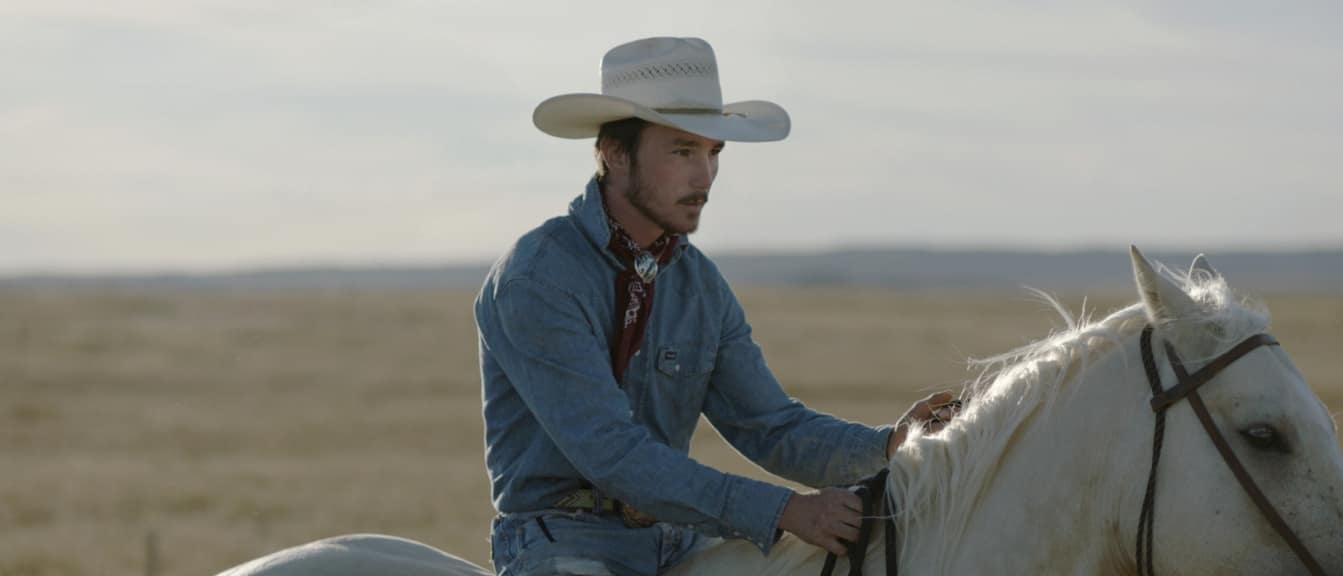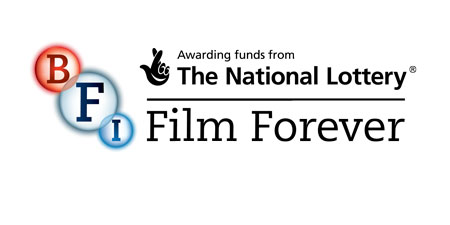The Rider Review
By Jake Abatan
30 August 2021
Off the back of a brilliant Film Review Workshop with Helen O'Hara, Jake Abatan reviews Chloé Zhao's The Rider, which screened on QFT Player as part of Film Feels Hopeful.

It’s been a long time since the heyday of the Western. No longer the genre of choice for big studio tent-pole releases,the Western’s fall from grace mirrors that of many of its heroes, which may or may not be a comfort to its fans. Far from the heavy hitting big screen genre it once was, chock full of epic battles and divine purpose, recently the Western has taken a more quiet and introspective approach. That’s where Chloé Zhao’s The Rider picks up the genre; glory days behind it, but with lifeblood in it still.
In modern day South Dakota (also the setting for Zhao’s debut, Songs My Brothers Taught Me), Brady (Brady Jandreau) is a rodeo rider “taking some time off” following a severe head injury. His attempts to get back in the saddle are complicated by his hand stubbornly locking, which tells you everything you need to know about Brady: he has trouble letting go. More specifically, he’s fixated on the rodeo. Whilst it may seem that his riding days are behind him Brady is still able to continue his side hustle of breaking in horses which of course presents a dichotomy; he is drawn to the rodeo for the sense of freedom it gives him, but part of that involves domesticating wild animals. Brady is trapped by the very idea of what freedom is.
We’re in classic Western territory here, but since the frontier has receded, it has left behind a neglected community. Poverty and drug abuse are prevalent, something that Zhao evocatively captures by using a documentary style. In particular Zhao’s use of non-professional actors, who belong to the very community seen on screen, is a master stroke and means the film is brimming with authenticity.
Brady’s father (Tim Jandreau) is distant, a drinker and gambler, and with the absence of their mother Brady must care for his autistic sister Lily (Lily Jandreau). All playing versions of themselves, these actors are a family in real life. The innate tenderness between them is palpable, with Brady’s strained relationship with his father being underscored by a clear sense of love and respect for each other.
That’s why The Rider’s pared-back story is so deeply engaging. In Westerns we expect sweeping vistas to dominate the film, but here it’s the soundscape that looms largest; from the deafening sound of crickets chirping to Brady removing surgical staples with a hunting knife. No Country For Old Men is a definite touchstone, but unlike the nihilism that that film’s soundscape elicits, the score in The Rider brings some welcome poeticism to the sparse South Dakota Badlands.
This isn't to say that the landscapes don’t have an impact on their own. Joshua James Richards’s cinematography beautifully captures the sparseness of the community bathed in natural light. We get a sense of the stillness there is to life out here, perhaps explaining Brady’s drive to return to rodeo riding despite the dangers made all too visible by his friend Lane Scott (played by himself), a rodeo prodigy now paralysed. The Rider is a study of a place, the people who live there, and the shadow of the cowboy they hope to rediscover at the rodeo. It’s an exceptional work from a filmmaker still proving her exceptional talent.




